
Parking space, Parking design, Parallel parking
18.40.050 Size of parking spaces. For all required parking spaces, the following shall be the minimum standards: A. Parking spaces shall have a minimum dimension of nine feet by eighteen feet; parallel parking spaces shall have a minimum dimension of nine feet by twenty-two feet.

Parking Lot Layout Dimensions minimalistisches Interieur
The average parking space length is around 16 feet or twice the width of the parked car. This size is based on the average car length and width. The size dimensions depend on the type of parking space—be it an accessible parking space, angled parking space, or electric vehicle charging space. Photo source Can we pay you to store vehicles?

street parking DIMENSION Google Search Parking design, Parking lot, Urban design plan
The dimensions of a typical parking space in the U.S. is approximately between 8.5 to 9 feet wide by 18 feet long. The size of a typical parallel parking space ranges from 20 to 30 feet. to 24 ft. deep, with a traditional 7.5 to 9 ft. width. When designing their lots, parking lots must take into account additional factors.

10 Things Parking Lots Must do to Comply with Handicapped Parking. 4078147400 Parking lot
1. Standard Parking Space Dimensions: The standard dimensions for a parking space in the United States are typically 9 feet wide by 18 feet long. Accessible parking spaces for individuals with disabilities must be wider, measuring at least 12 feet wide, with additional space provided for adjacent access aisles.

parking garage dimensions Google Search Predios
Thirty (30) percent of the total number of parking spaces on the building site to be EV Capable (capable of supporting future Level 2 electrical vehicle charging spaces (EVCS), ii. Twenty-five (25) percent of the total number of parking spaces on the building site to be EV Ready (equipped with low power Level 2 EV charging receptacles).
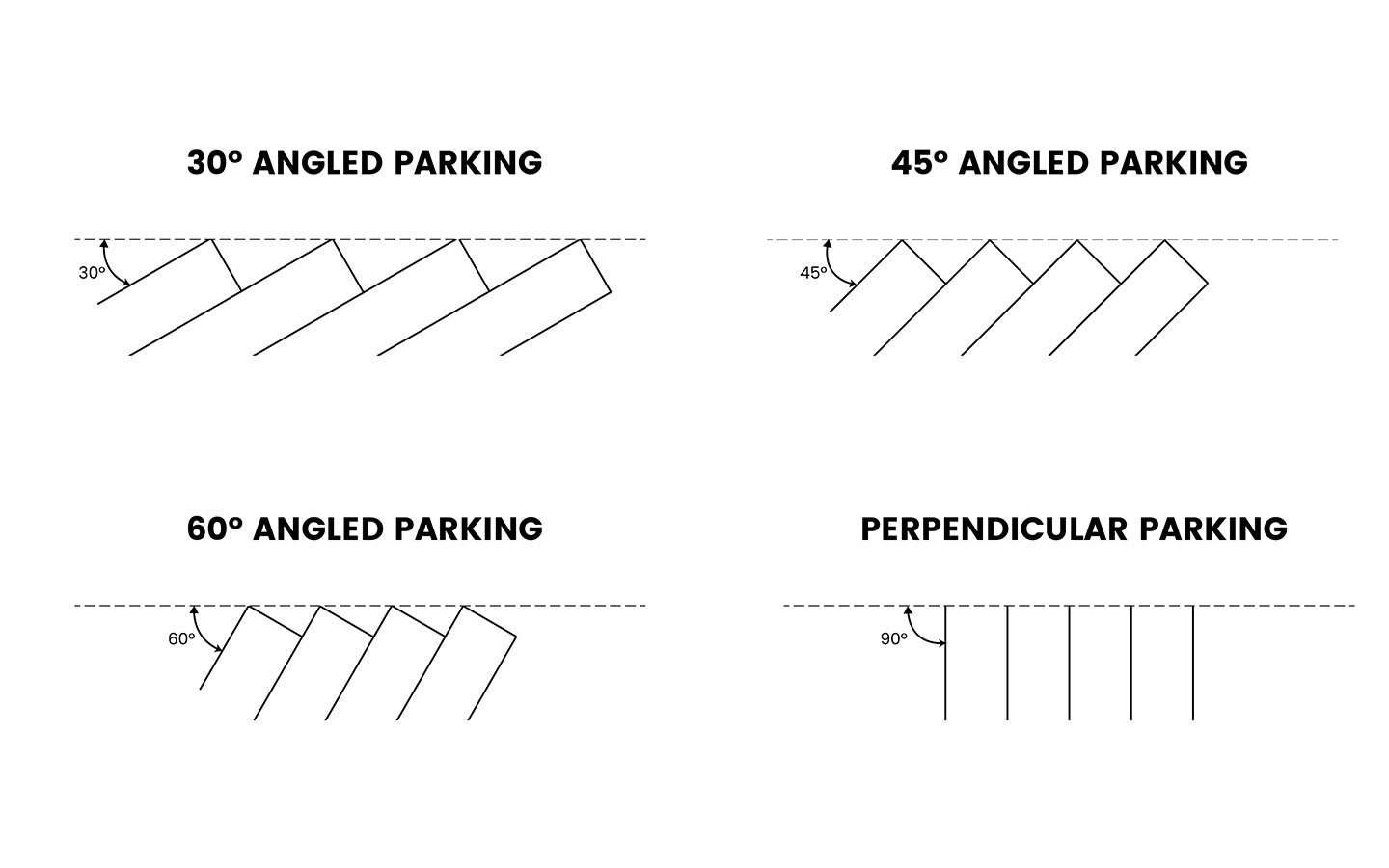
What Are the Standard Parking Space Dimensions?
A Parking Space is a paved or unpaved space for parking in a busy street, parking lot, or parking garage. Vehicles in a parking space can either be in parallel parking, angled parking, or perpendicular parking. They are marked so that each vehicle fits into the designed marked area.
Parking Spaces Dimensions & Drawings Dimensions.Guide
Location, Layout, & Size Matter. The handicap striping in your parking lot is governed by both federal & state codes, and understanding those codes can get tricky at times.. So by example, if you have 150 parking spaces in your lot, you would be required to provide 6 standard handicap stalls, and 1 van accessible stall.

Car Parking Dimensions Floor Plan Parking design, Car park design y Parking building
Rules have been developed for optimizing parking area space. Among them are the following: Use rectangular areas where possible. Make the long sides of the parking areas parallel. Design so that parking stalls are located along the lotÕs perimeter. Use traffic lanes that serve two rows of stalls. Table 5-1. Recommended Parking Requirements Land Use
Parking Space Dimensions Car Parking Size In Feet
Standard parking space dimensions across America are 7.5 and 9 feet for width and 16 to 20 feet for depth. However, for the North American dimensions, you are needed to use 8.5 to 9 feet wide by 18 for parking space. For angles, it is 30, 45, 60, and 90 degrees for most places. Let's look at some of the types of parking spaces and dimensions.
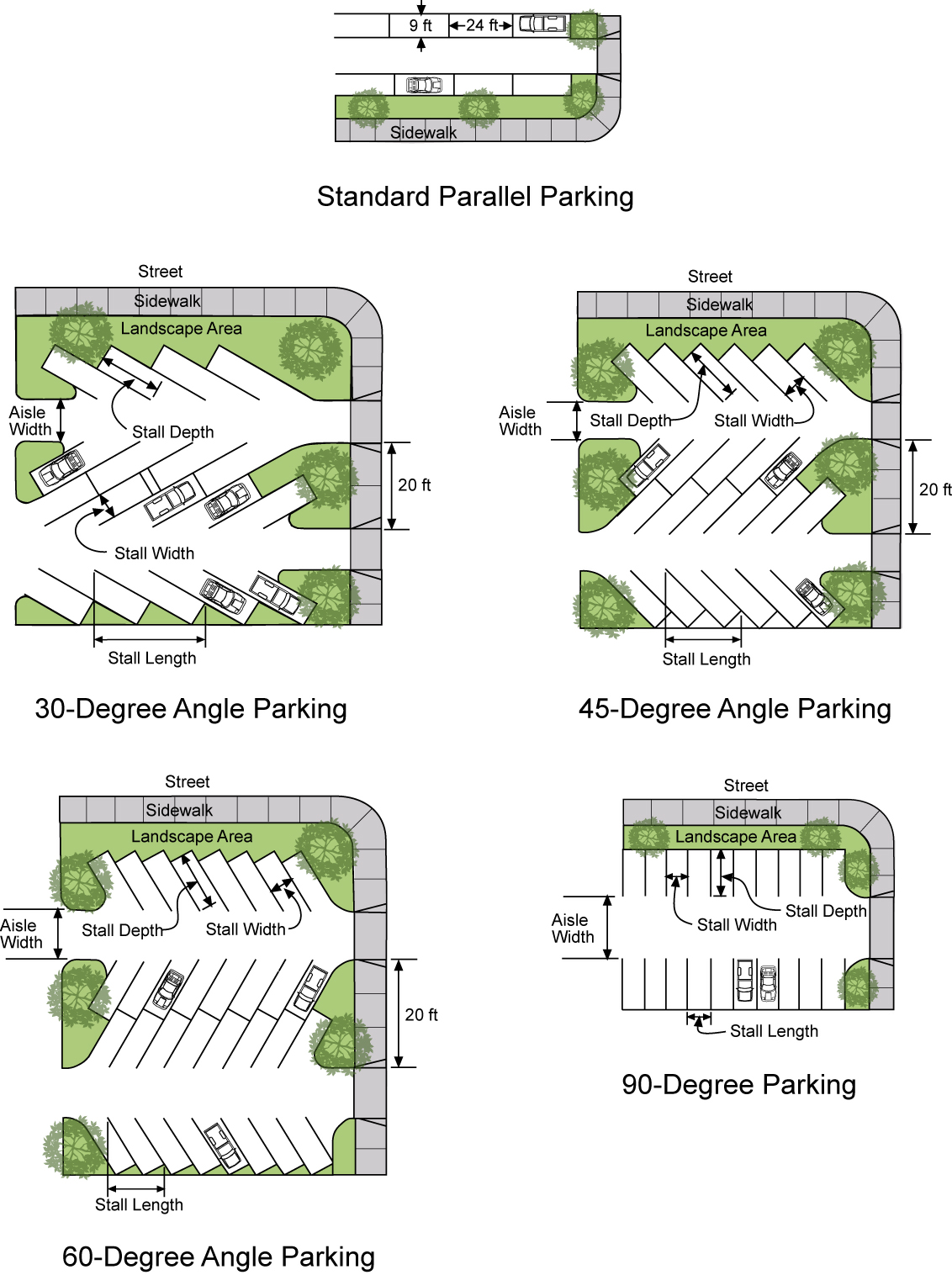
One Way Parking Lot Design Standards
The 45° Parking Space can accommodate more vehicles compared to parallel parking and 30° parking. This is made possible by the increase in the angle of parking.. The factors to consider in a parking lot layout include: parking lot size, pavement, parking space angles in consideration to level of vehicle turnover, accessibility requirements.
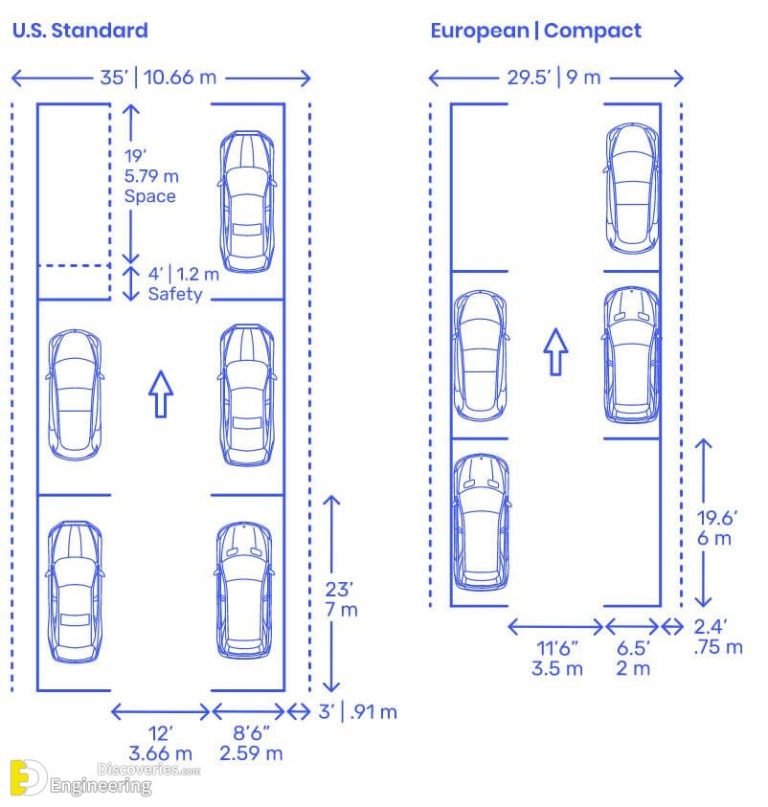
Dimensional Car Parking And Layout Information Engineering Discoveries
The standard parking space dimensions across America are between 7.5 and 9 feet wide and 16 to 20 feet deep. Spaces for parallel parking are slightly larger on average, usually between 20 and 24 feet deep. What is the Size of a Standard Parking Space?
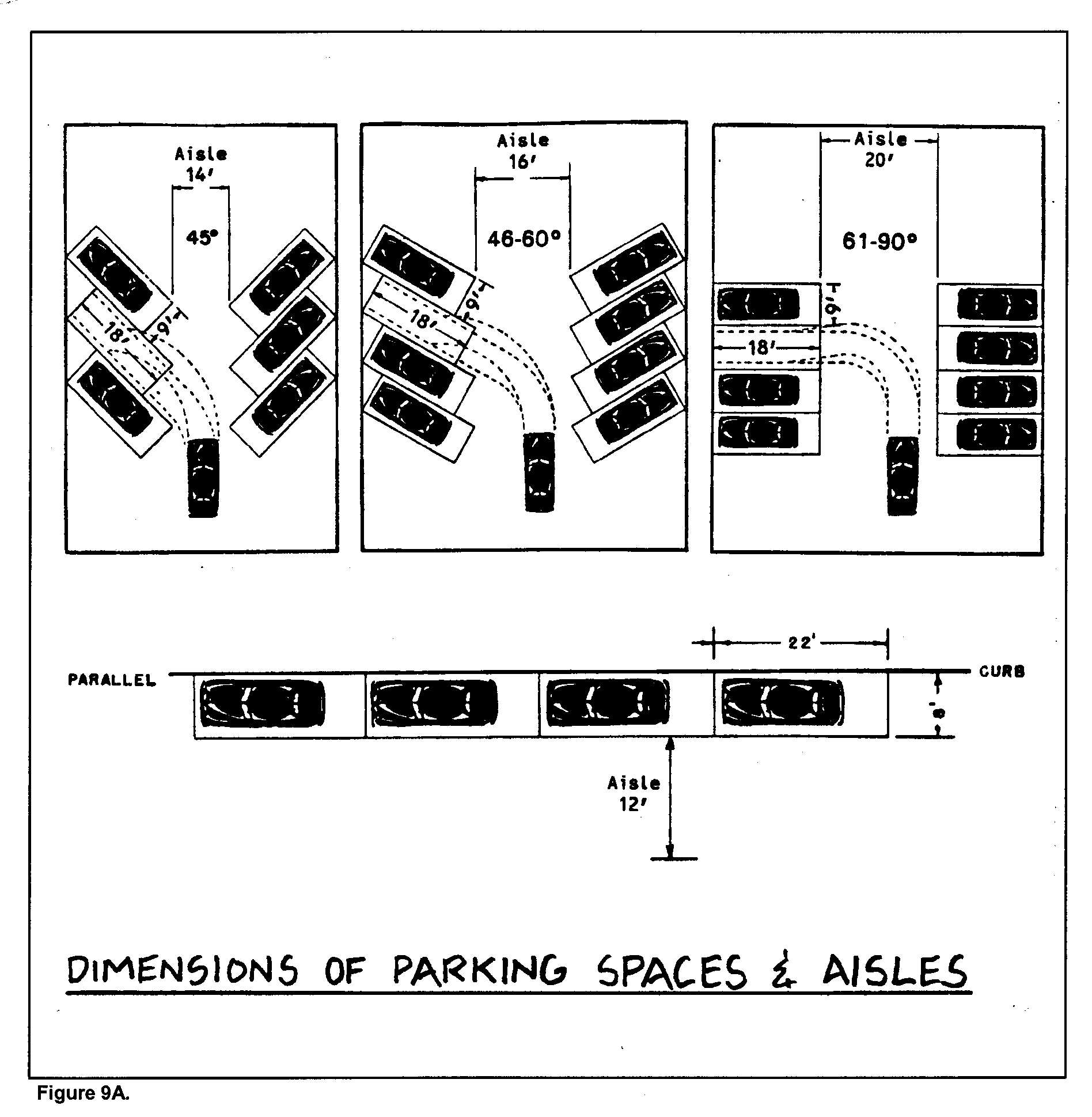
Angled Parking Truck Parking Lot Layout Dimensions minimalistisches Interieur
In North America, the standard parking space dimensions range between 8.5 to 9 feet wide by 18 feet long. Parking lot aisles will have a space between rows ranging between 14 to 24 feet, depending on whether they're a one-way or a two-way aisle. Additionally, most parking spaces will have an angle between 30º, 45º, 60º and 90º relative to the curb.
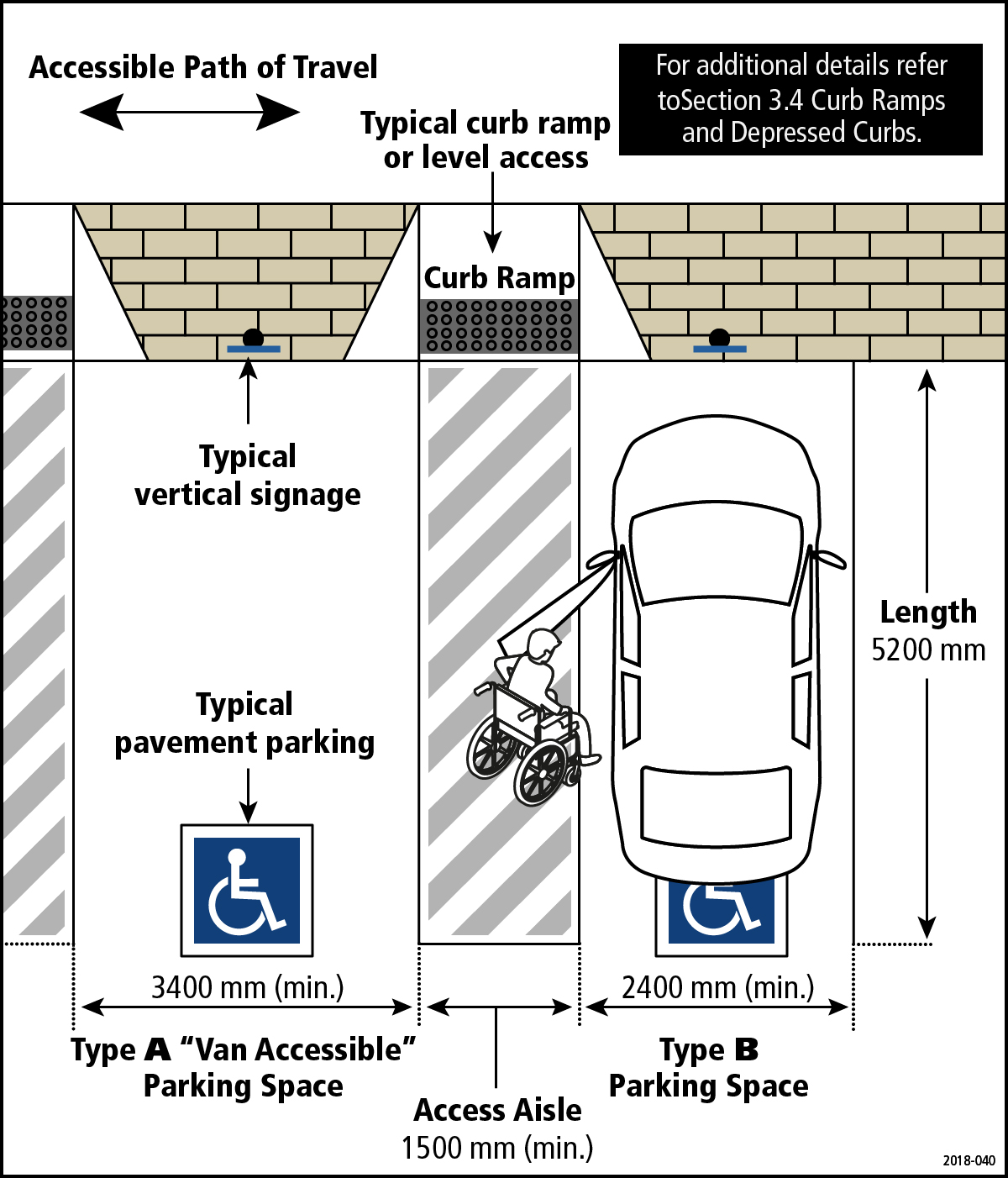
What Is The Size Of A Parking Space For A Car Best Design Idea
Car Parking Size In Feet. If you are planning to make parking space for single-car then as per CMDA regulations, the standard car parking dimension is 2.5 m (8'2") wide and 5 m (16'4") long. The average car parking size in feet is 16 to 18 feet long and 8 to 9 feet wide which is about 160 square feet. Standard Parking Space Size.
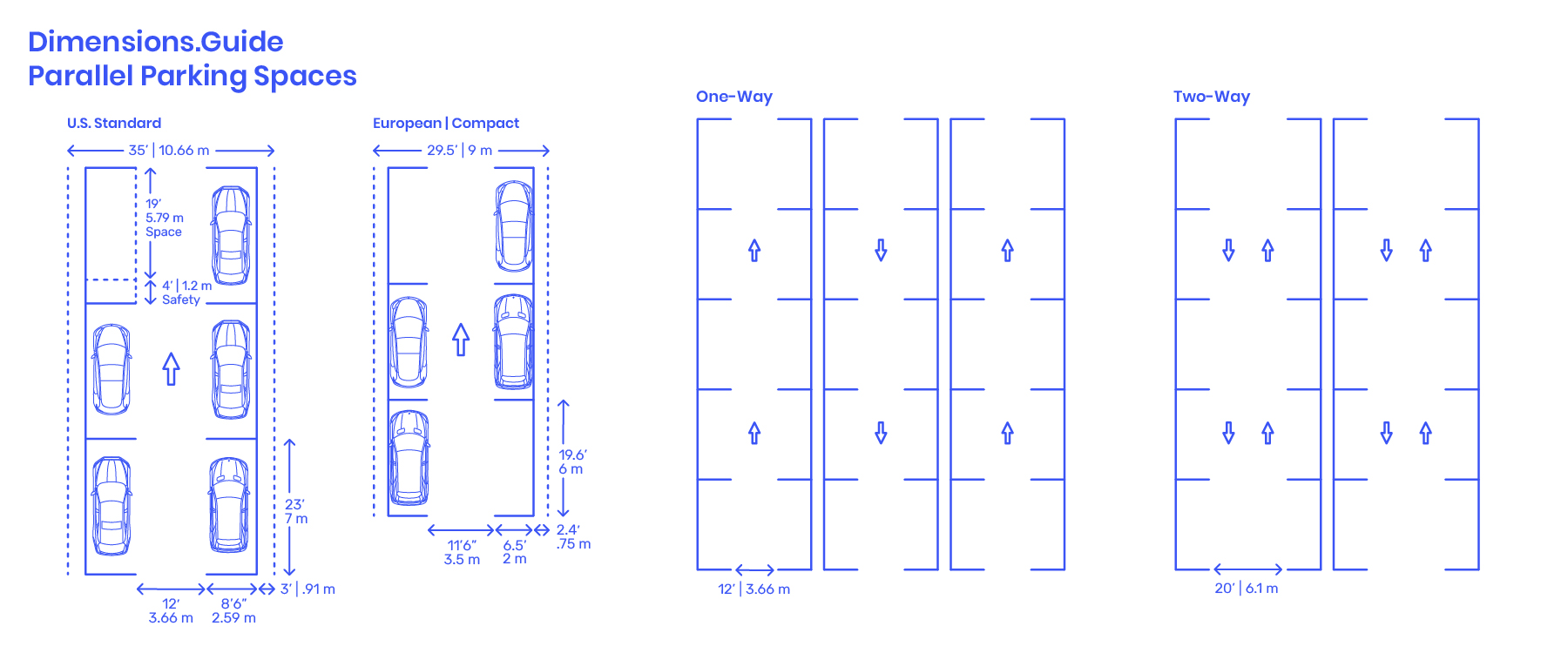
Drivers Test Parallel Parking Dimensions Mn truesup
Compact Parking Space Dimensions. The measurements vary, but 130 sq ft / 12 sq m is just about the average. This area includes the portion set aside for circulation areas, parking, landscaping and end of aisle areas. The size of the area rests upon the purpose of the space. The bigger spaces are used if there is high retail customer / high.
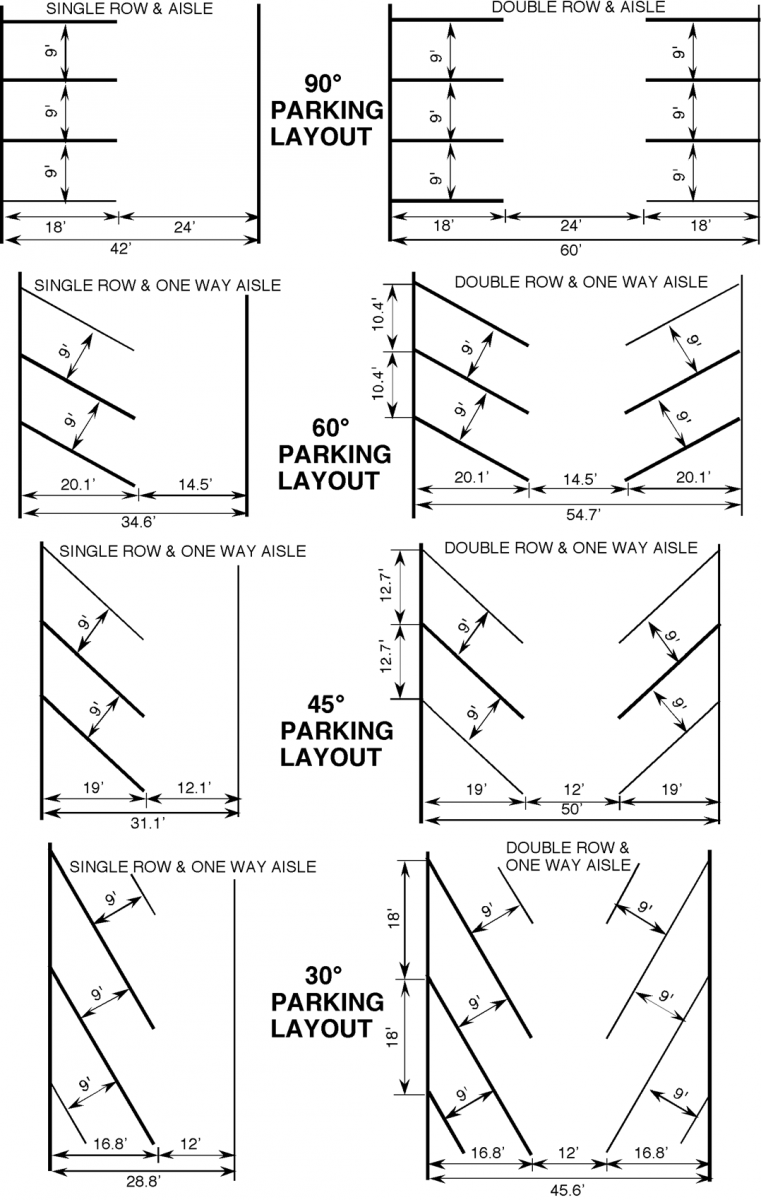
Parking Dimensions ARCH 3510 Fall 2015
The standard parking space size is 9 feet by 18 feet. The minimum parking space size is 8 feet by 16 feet. The minimum width for an accessible parking space is 8 feet. Adjacent parking spaces must have a 5-foot aisle width, while those for accessible parking spaces should have an 8-foot aisle width.

What is the minimum size of a parking space? Parking design, Car park design, Parking space
Parking lots, open areas designated for vehicle parking, are crucial in urban planning, accommodating vehicles in commercial, residential, and public spaces. A well-designed layout maximizes the number of parking spaces while ensuring easy maneuverability and pedestrian safety.